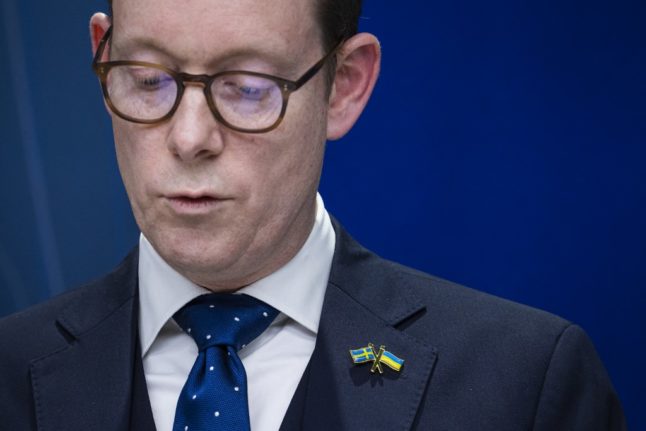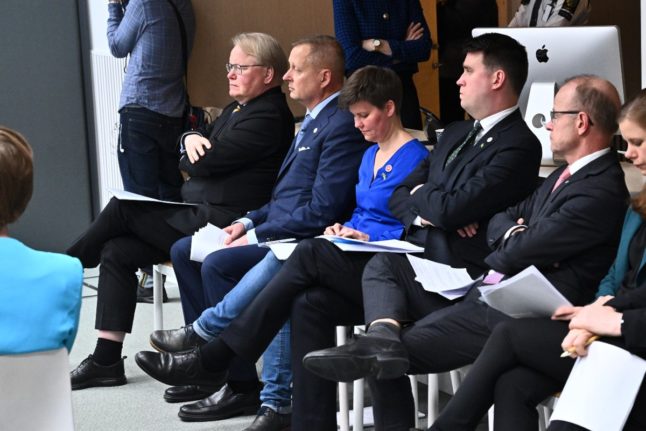“This is a development that we did not want, but that we were prepared for,” Billstrom told journalists, adding that the country’s priority was now securing ratifications from the two holdouts – Turkey and Hungary.
Following months of delays, Turkey’s President Recep Tayyip Erdogan announced Friday that he was asking parliament to vote on Finland’s bid to join the Nato defence bloc.
However, he said he was still not ready to move forward on Sweden, which submitted its bid together with Finland in May of last year.
In another setback for Sweden, Hungary announced Friday that it would vote on Finland’s ratification on March 27, but Sweden’s bid would be decided on “later”.
READ ALSO: Erdoğan asks parliament to vote on Finland’s Nato bid alone
Billstrom declined to comment on the news from Hungary, saying he had no confirmation from Budapest.
The Nordic neighbours ended decades of military non-alignment and decided to join the US-led defence alliance following Russia’s invasion of Ukraine.
Their applications were accepted at a June Nato summit, but the bids still needed to be ratified by all 30 of the alliance members’ parliaments – a process that ran into trouble when it came to Turkey and Hungary.
Erdogan has accused Sweden in particular of not honouring the terms of a separate deal they reached in June 2022, under which Turkey had agreed to approve the bids.
READ ALSO: ‘Increased chance that Finland joins NATO before Sweden’: PM
Turkey has sought the extradition of dozens of Kurdish and other suspects it accuses of ties to outlawed militants and a failed 2016 coup attempt.
On Friday, the Turkish head of state said Sweden had still not agreed to extradite a list of some 120 people wanted by Ankara.
In Stockholm, Billstrom insisted that Sweden was living up to its commitments under the deal.
“We are doing everything that is written in this memorandum, but we do not do less and we do not do more than what is written in it,” he said.
READ ALSO: KEY DATES: The milestones ahead for Sweden’s Nato membership
“This means that when extradition cases arise that are related to this memorandum, there will be decisions that can be positive and that can be negative from Turkey’s point of view and that is how it will simply be,” he added.



 Please whitelist us to continue reading.
Please whitelist us to continue reading.
Member comments